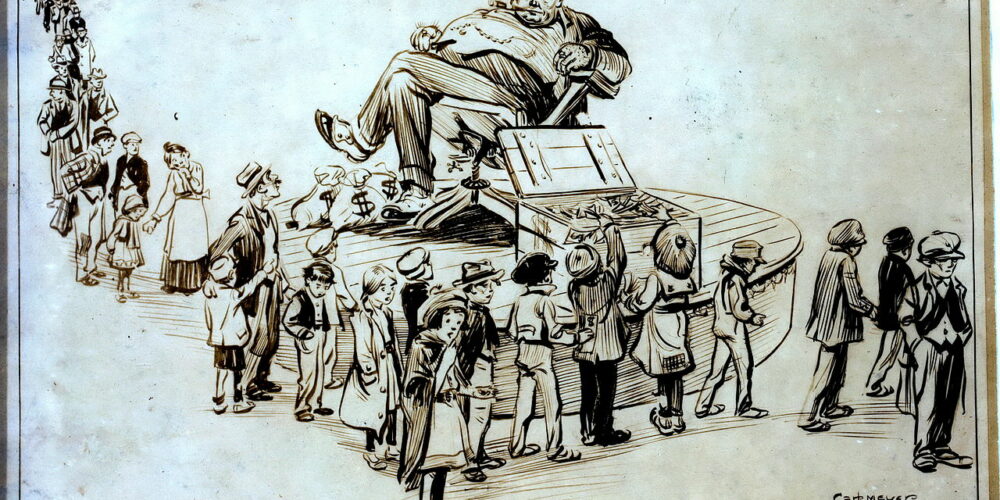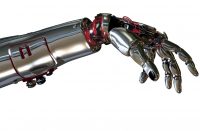“Why do we work?” seems like an odd question. Sure everyone works, do they not? Or the majority of people do, one way or another.
And if you can’t, don’t or won’t work there is every chance you are seen as lazy, a sponger, or worse. But there has to be more to life than work.
The reality for the average worker is that they are forced to work to live. They work to earn money to pay bills. A tiny minority of people can work for no pay or for pleasure only. Work can hardly be described as therapy either. Certainly, the working class cannot afford that.
But what is work, or a job? It is more likely to be called “work” or “a job” at the working-class level; but when you go up to the higher classes it is normally referred to as a “career.” Work, or a career, is a means of survival. Some people cannot work, or choose not to, and live off state benefits and, potentially, odd jobs for cash.
The wealthy, on the other hand, generally employ others to work for them and reap the reward of the labours of those whom they employ. Those who inherit wealth seldom need to work and instead choose to invest and financially exploit to accumulate, to gain even more wealth. The ordinary wage worker will never be in a position to do that.
As children we learn about work very early on: “Daddy has to go to work, Mammy has to go to work” . . . “What will you work at when you grow up?”
So the conditioning of the mind begins early. Even in the home environment, especially in farming families and family businesses, children are given “wee jobs” or chores. Do parents subconsciously feel they have to begin early to discipline children for the vagaries of the world of work ahead?—as they themselves were.
When you go to school as a young child you are told that a good education will land you a good job, and you will be rich and famous—“like Alan Sugar, or Bill Gates, or Jeff Bezos.”
The brainwashing about “meritocracy” and “competing” begins early. Everything you do, even in primary school, is geared to being prepared for work. It’s not about learning, it’s about being trained to be part of a bigger machine. A child’s natural inquisitive nature and dreaming are suppressed by the system’s curriculum-driven “learning” process: being trained by the system, for the system.
A little over a hundred years ago Patrick Pearse called the state education system the “murder machine,” because he felt it killed any natural learning abilities that children had. Education, he felt, consisted of a state curriculum that poured knowledge into pupils’ heads to make them “good citizens” and be geared for the world of work. Paulo Freire also wrote at great length about the politics of that learning process.
Once children reach secondary or grammar school and university, the rate of “grooming for the system” increases dramatically. The process of weeding out the “less capable” takes on a more ruthless form. Selections begin before secondary school or grammar school, then Junior Cert (or GCSE or A-Levels)—all of which is just about retaining and regurgitating information.
Whoever fails these hurdles is resigned to work, apprenticeship, emigration, or starting their own business. Escape and become an “entrepreneur” and you really become part of the system. Generally, the lower your educational achievements the lower-paid the work is.
The hierarchy of education, private schools v. public schools, further creates a division in education and ultimately the type of work pupils find themselves in.
The class division is perpetuated even at the educational level. And this is no accident. The children of the ruling economic and political elite (1 per cent) are educated to perpetuate, manage and control the economic system we know as capitalism. The worker’s children (99 per cent) act as the wage slaves for this system. Less than a hundred years ago children actually worked in industry as ordinary workers, with no rights or even an education. And this still happens today around the world.
It is the norm nowadays for children to work while they are still in education. It is again necessary to “pay their way” while they are at school; and it is the first experience of debt, through student loans, that children have.
This is particularly prevalent and onerous in working-class families. And if these children manage to jump all the hurdles to get to a college or university they will definitely need to work part-time.
Everything about education is expense on the one hand and profit for others who make education a business. All these conditions train and normalise children for what is to come, when they finish education and get their first “real” job.
Part-time “student workers” are thoroughly exploited. Their pay in these temporary jobs is derisory: a minimum wage of £4.62 per hour for those aged under 18, and £6.56 per hour aged 18 to 20. Aged 21 to 22 it is £8.36, and aged 23 and over it is £8.91 (Source: www.gov.uk.)
All of this is precarious work, with what are aptly called “as and when” or zero-hour contracts.
In these jobs they are treated not as children trying to make ends meet and be educated but as fully fledged company employees. That means strict rules and time management. They learn early that “time is money”—though not for the worker but the employer.
So at a very early age children internalise the employee to employers’ rules and regulations. As we know, their meagre wages and the rules and regulations favour the employers and increase their profits. Through this process, most learn to be subservient to employers and are not radical or even unionised. It’s an early lesson in the dichotomy of “needing the money and being obedient.” What they are is an expendable source of cheap labour. This is their entry into the “world of work.”
So who does the “world of work” really benefit? And is there another way for humans to live? Let’s look at those questions next month.






